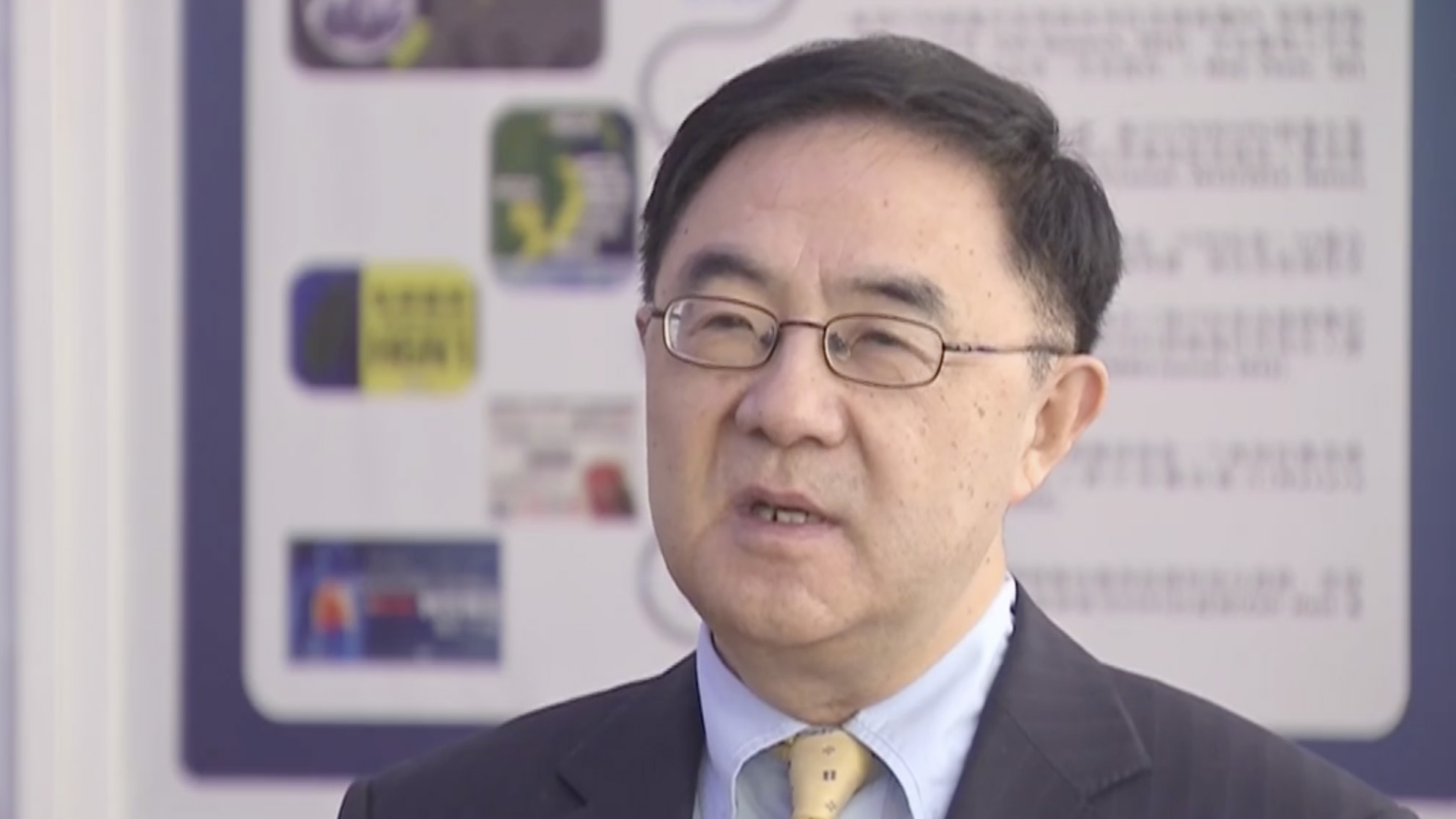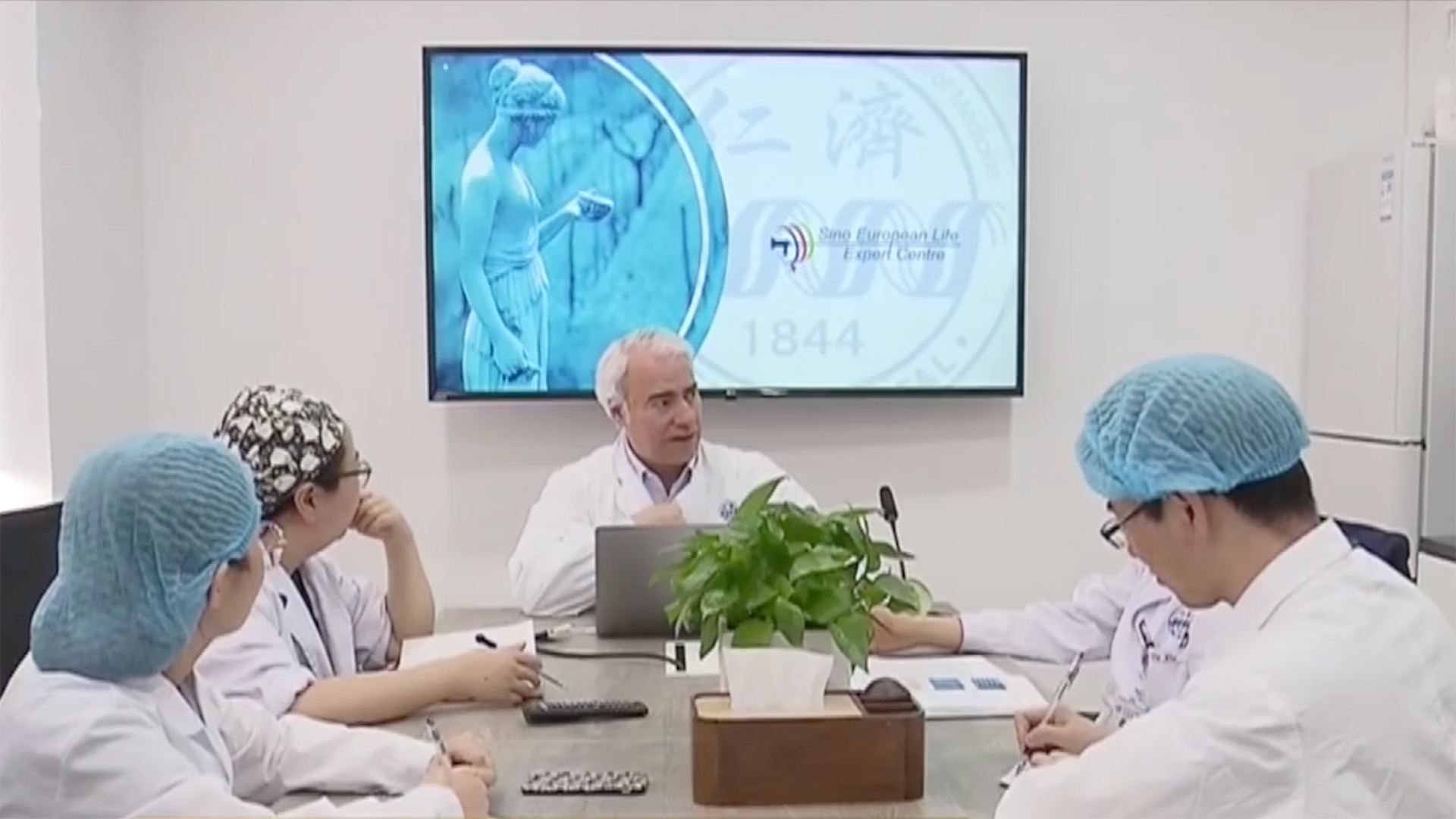01:14

One of China's leading experts on vaccines has talked with CGTN, explaining that, in the case of the China-developed vaccine in Brazil, the focus on highest-risk groups in the clinical trials leads to a relatively low efficacy rate. The COVID-19 vaccine developed by China's Sinovac is reported to have an efficacy rate of just above 50 percent in Brazil.
Shao Yiming, adviser to the Product Development Vaccine Advisory Committee at the World Health Organization (WHO) and chief expert at the Chinese Center for Disease Control and Prevention (CDC), said the volunteers in the Sinovac trials in Brazil are all doctors and nurses, who are among the highest risk groups due to extremely high exposure to the coronavirus.
Shao said that the estimated exposure of medic staff to the virus is "at least five times" higher than the general population. "No other trials focus on doctors and nurses, the most difficult population to prevent virus transmission," he stressed.
The world urgently needs vaccine data for doctors and nurses as they are frontline fighters, and the Brazilian trials first provided the data, which is "a very good thing," said the expert.
Brazil's Butantan Institute released the final-stage trial results of the vaccine developed by China's Sinovac Biotech on Wednesday. While it's 100 percent effective in preventing severe and moderate infections, the vaccine has overall efficacy of 50.4 percent.
Besides having higher-risk volunteers than the Pfizer and Moderna trials, the institute used "more stringent standards," reported Fortune on Saturday citing Ricardo Palacios, medical director of the Butantan Institute. "We added all possible difficulties (to our trials)."
On Thursday, an international expert team from the WHO arrived in Wuhan to conduct joint research with Chinese scientists.
Noting that the team's aim is to trace the potential source of the virus, Shao said the priority now is to contain the current pandemic, as origin tracing may take decades of time. He said after bringing the pandemic under control, scientists and researchers will have time to carry out comprehensive and solid research on the origin tracing.
Global cooperation key to beat COVID-19
02:14

Many countries have been struggling to contain a massive winter wave of the coronavirus. Even with tight restrictions and lockdowns in place, the number of confirmed cases continues to spike.
Facing such challenges, Shao said international cooperation is key to bring the pandemic under control.
"Almost all the time, we are behind the virus. So how to get ahead of the virus is a challenge to the global scientific community and the entire world at large."
There's only one solution that people can take to achieve that goal, Shao continued. "That is to strengthen international collaboration, in areas including basic research of virus, surveillance and infrastructure at a global level."
Shao added that China's CDC helping Africa build its CDC is a good example of international collaboration.
China and the U.S. signed a memorandum of understanding to jointly support the establishment of the African CDC in 2016, as well as strengthening Africa's public health capacity.
Shao also indicated that international collaboration could expand from virus disease to parasitic disease and bacterial infection to promote better health protection worldwide.

